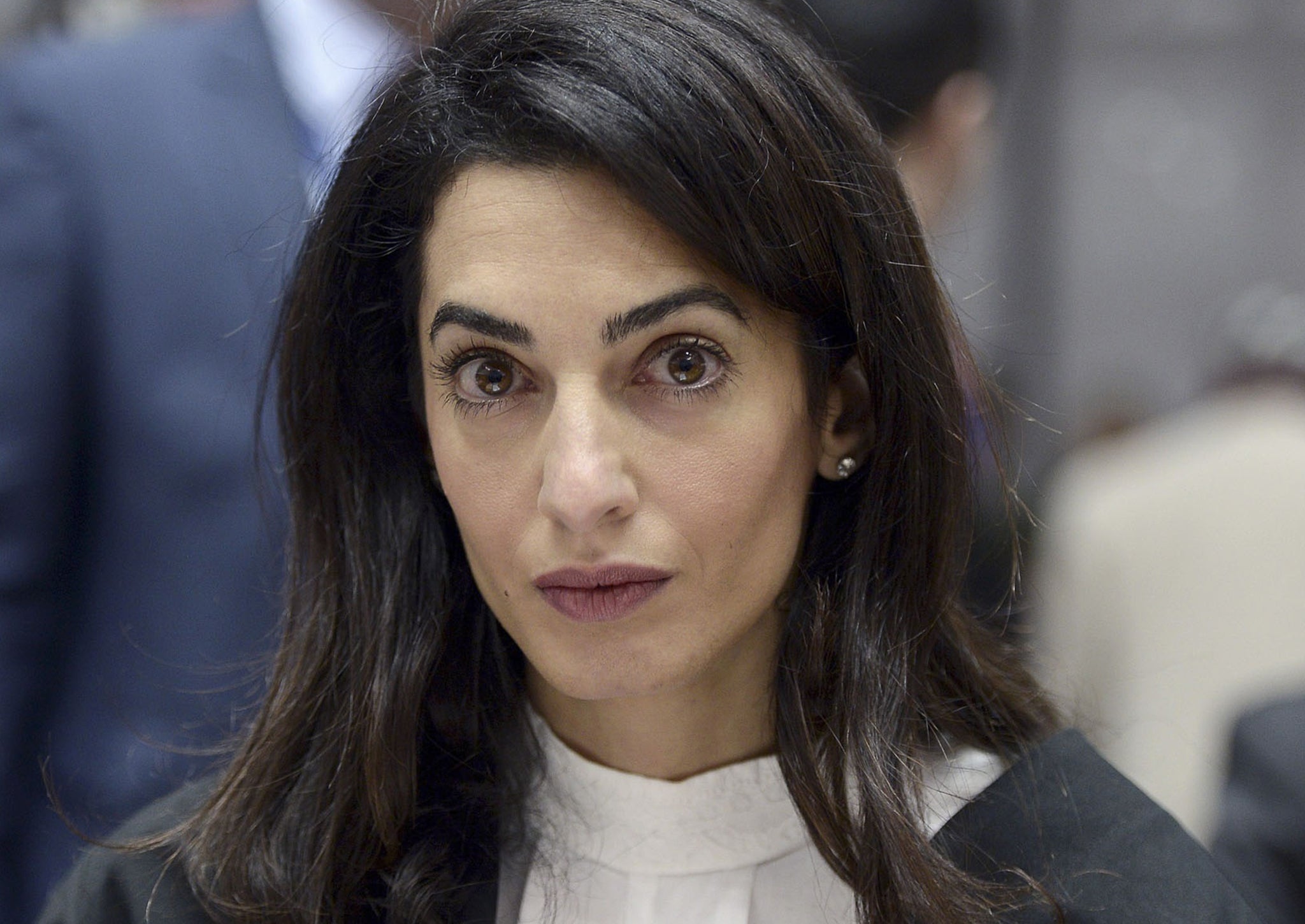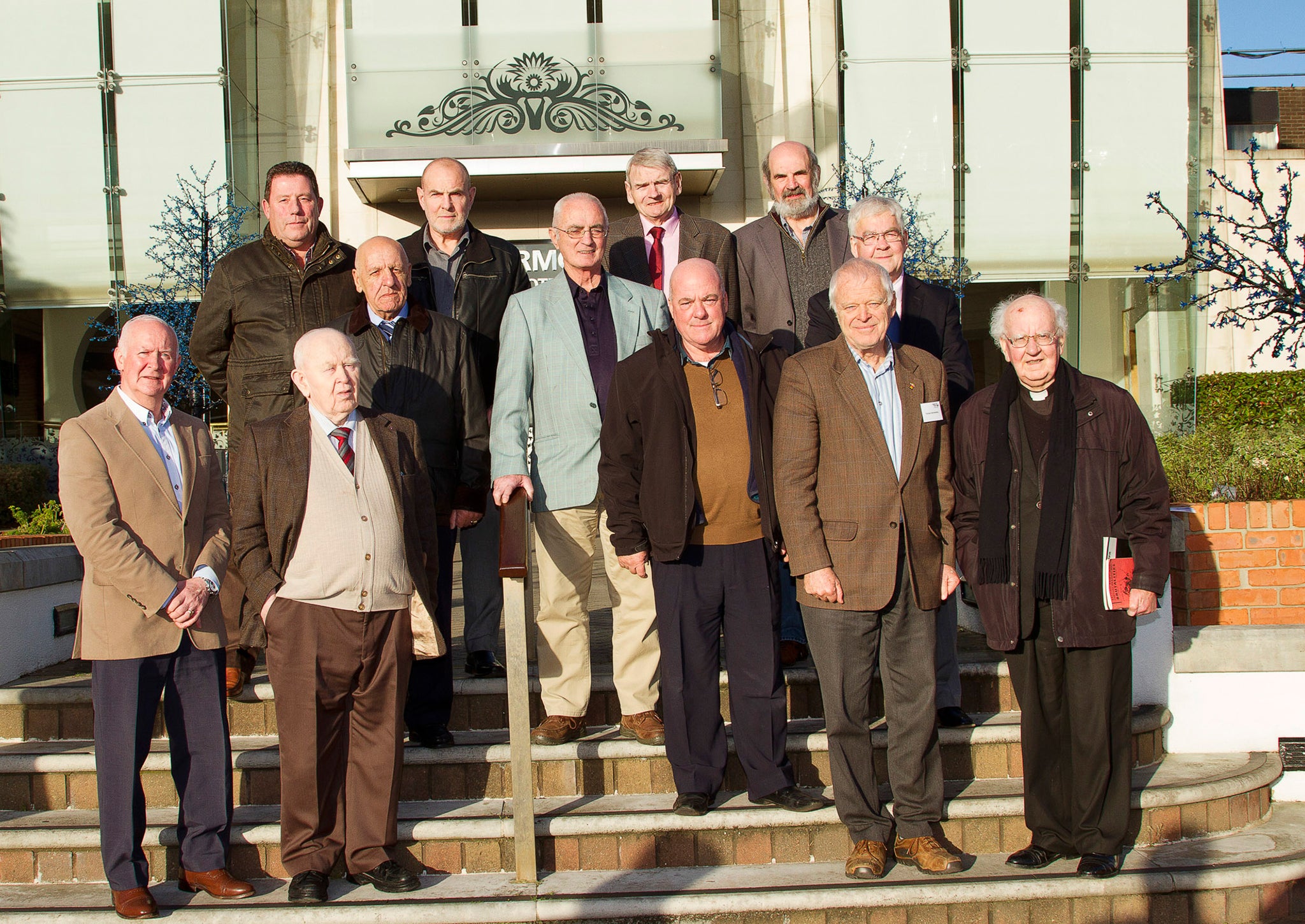If Amal Clooney wins the 'Hooded Man' case, the embarrassment for the UK would be huge
The human rights lawyer is fighting on behalf of a group of Irish men who claim to have been beaten, starved and thrown from helicopters by British forces

Your support helps us to tell the story
From reproductive rights to climate change to Big Tech, The Independent is on the ground when the story is developing. Whether it's investigating the financials of Elon Musk's pro-Trump PAC or producing our latest documentary, 'The A Word', which shines a light on the American women fighting for reproductive rights, we know how important it is to parse out the facts from the messaging.
At such a critical moment in US history, we need reporters on the ground. Your donation allows us to keep sending journalists to speak to both sides of the story.
The Independent is trusted by Americans across the entire political spectrum. And unlike many other quality news outlets, we choose not to lock Americans out of our reporting and analysis with paywalls. We believe quality journalism should be available to everyone, paid for by those who can afford it.
Your support makes all the difference.Amal Clooney is about to take on one of her biggest legal challenges yet - accusing the British government of committing torture in Troubles-era Northern Ireland, then then lying about it to the European Court of Human Rights.
The accusations will be levelled in a high-profile case due to come before the Strasbourg Court. The outcome could rewrite the law books and help to combat the use of torture globally.
Here’s what happened. In August 1971 the UK authorities arrested and interned hundreds of men in Northern Ireland. Fourteen were selected for “special treatment" in a specially-built interrogation centre at a British Army camp.
The men claim they were subjected to “five techniques” of hooding, stress positions, white noise, sleep deprivation and deprivation of food and water - combined with brutal beatings and death threats. Some were also reportedly thrown from helicopters while their heads were covered with hoods.
Allegations soon emerged of abuse. In the same year, Amnesty International sent its first ever research mission to the UK to investigate, interviewing the men and finding some of them still black and blue with bruises.
What Amal Clooney - who has just joined the legal team representing the surviving men - must prove, is that the abuse amounted to torture, rather than the lesser category of “inhuman and degrading treatment”. The distinction is crucial.
The original case was brought by the Irish government on behalf of the men, the first time one European state had brought another before the Strasbourg court. In 1978 the court concluded that the “five techniques” inflicted on the men constituted inhuman and degrading treatment in breach of Article 3 of the European Convention of Human Rights, but not torture.
The judgment has since become a cornerstone of international human rights law. So much so, that when lawyers in the United States Attorney General’s office prepared legal advice to pave the way for the CIA’s “enhanced interrogation programme”, they reached for the Ireland v UK case, arguing that its judgment allowed “an aggressive interpretation as to what amounts to torture”.
With the publication in December of the Senate Committee’s summary Torture Report, the world has seen where that legal reasoning led: the brutal torture of detainees around the world and irreparable damage to the reputation of the US.
All this came to pass, it is now alleged, because the British government of the time decided to withhold documents from the European Court of Human Rights, rather than be reviled internationally for the torture of its own citizens in Northern Ireland.

The “hooded men” case is now being brought back to court by Ireland’s government after material was uncovered in the British national archives revealing that the UK withheld crucial evidence from the European Court during the original hearing.
The files show that the British government considered the “special treatment” as torture and yet senior Ministers sanctioned its use in Northern Ireland, both of which they had denied before the European Court.
Amal Clooney and the rest of the hooded men’s legal team now must show that the UK only succeeded in persuading the court to absolve it of torturing its own citizens by actively misleading judges.
More serious charges could scarcely be made: torture, and lying to the European Court. If Ireland, the hooded men and Amal Clooney succeed with this case, the implications are potentially huge.
Success in Strasbourg would be very embarrassing for the UK government. But thanks to Amal Clooney, it could also set a new legal precedent which would hinder the use of such torture techniques in the future, and after all these decades, such a precedent couldn't be more welcome.
Join our commenting forum
Join thought-provoking conversations, follow other Independent readers and see their replies
Comments